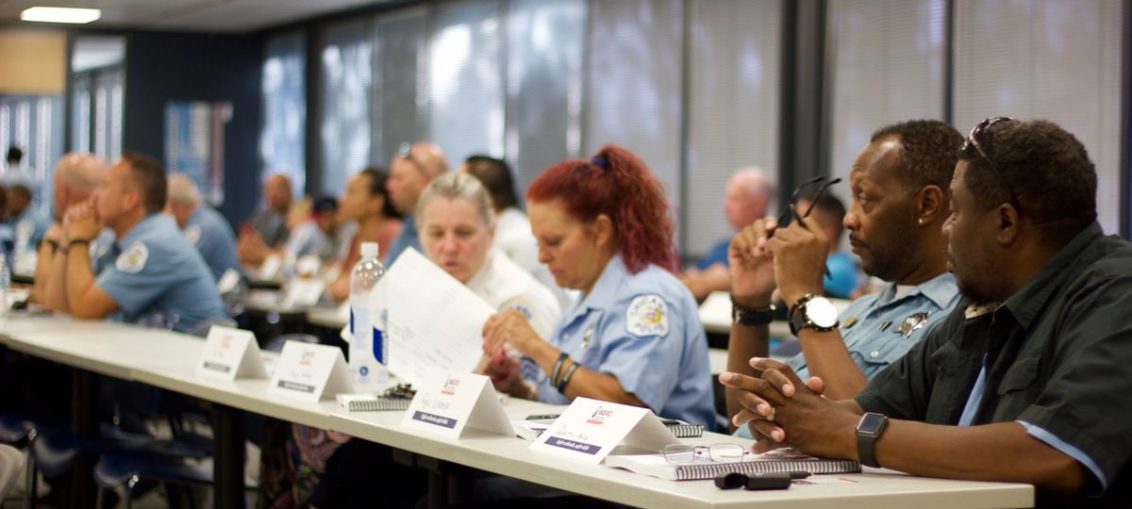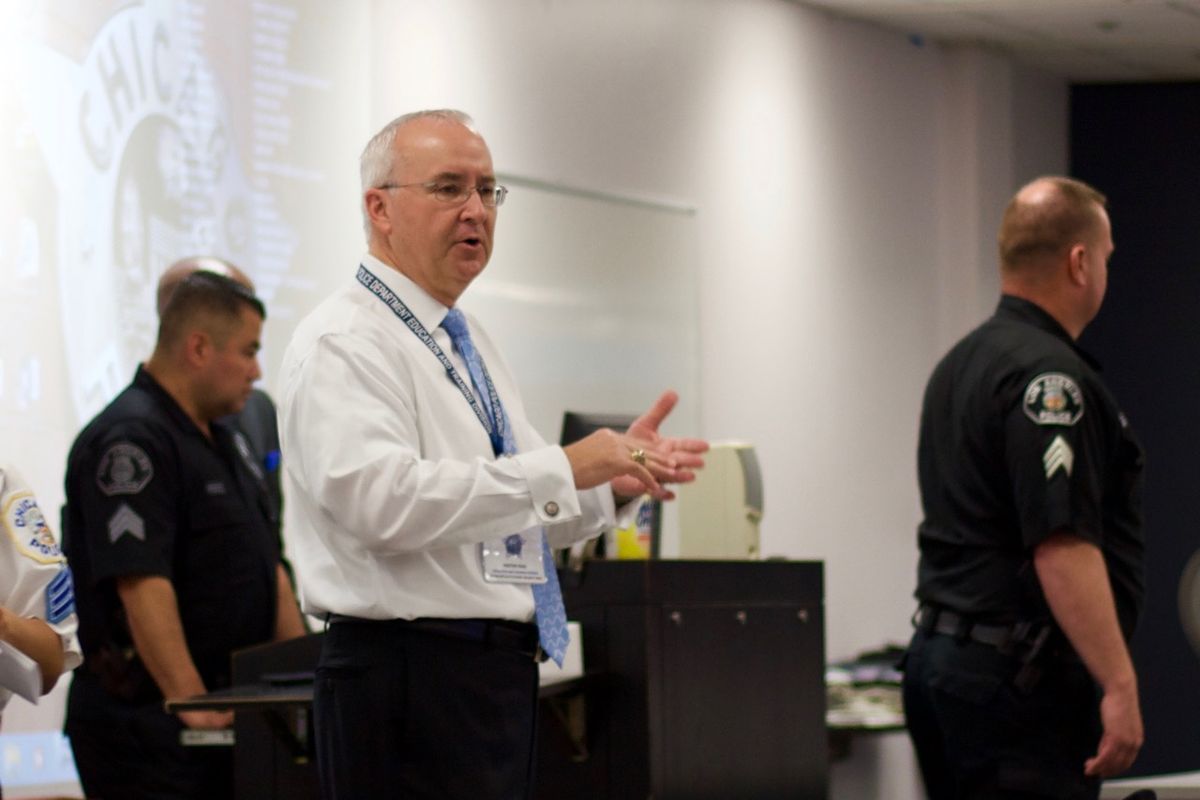
As a gaggle of 47 Chicago law enforcement officials assigned to town’s colleges attended a long-overdue coaching session Monday, one officer candidly talked concerning the struggles they confronted.
“What about the kids who are coming to school after getting out of jail?” he requested. What about “kids out there that hate the police just because they hate the police”?
Those college students, he mentioned, search out confrontations with officers. If a scholar crosses the road, “I’m going to police their ass,” the officer mentioned.
The feedback got here as officers from Los Angeles and Baltimore, instructors with the National Association of School Resource Officers, launched into the second week of coaching after the cops’ function in Chicago Public Schools have been extremely criticized. Mayor Lori Lightfoot has threatened to tug them from colleges altogether.
The group attending the session Monday was largely comprised of skilled officers — most having greater than 20 years on the pressure and lots of having labored in colleges for greater than a decade.
All of the officers mentioned though they had been dad and mom, they’d by no means acquired particular coaching in working with college students earlier than. They mentioned they must stroll a skinny line between being a cop and a social employee.
“You have the kids that are homeless, the kids that are hungry, the kids that have mental problems — that are diagnosed and undiagnosed,” Katherine Hughes, an officer at Corliss High School, mentioned of out of doors points CPS college students face that may result in interactions with police.
 Mo Canady, govt director of the National Association of Student Resource Officers, talks to Chicago law enforcement officials throughout a coaching session Monday. Matthew Hendrickson/Sun-Times
Mo Canady, govt director of the National Association of Student Resource Officers, talks to Chicago law enforcement officials throughout a coaching session Monday. Matthew Hendrickson/Sun-Times
Officers complained they lacked a clearly outlined function of their faculty and had been referred to as to incidents by faculty directors that violate the district’s personal insurance policies, which state that an officer ought to solely be referred to as “in the event of criminal activity or an emergency.”
The final authorized settlement between the varsity district and police division expired in 2017, and Chicago police don’t at present have any coverage directives overlaying the function of faculty officers.
“I’m excited about the training, and I would like to see some clear-cut guidelines,” Hughes mentioned.
The impact of that lack of coaching and steerage was highlighted earlier this 12 months when a 16-year-old scholar was pulled down a flight of stairs and shocked with a stun gun at Marshall High School by two officers who turned concerned in a scholar disciplinary matter.
James Ream, a NASRO teacher and sergeant with the Los Angeles School Police Department, mentioned that the coaching wouldn’t particularly handle the incident at Marshall, however mentioned the course would cowl de-escalation strategies utilizing real-world examples, together with footage of an officer flipping a scholar off a chair at a South Carolina faculty in 2015.
Sgt. John Knezevich, a CPD supervisor who lately took over a workforce of faculty officers, mentioned he believes the shortage of coaching has contributed to issues between college students and cops.
“I’ve had situations where … officers from the beat would arrive at these schools and the interactions would be confrontational from the get-go,” Knezevich mentioned. “I do believe it’s a special type of officer who should be in the schools and the training is definitely a major part of that.”
“This SRO job is not for the weak,” Don Bridges, a NASRO coach and a police officer with Baltimore County Public Schools, informed the trainees. “It’s for the best and the brightest.”
The coaching, which the officers will full over 40 hours of this week, encourages officers to be seen in colleges and to work together with college students outdoors of their function as cops, together with collaborating in class actions, comparable to teaching. Being seen as extra than simply somebody who makes arrests is crucial to their success…